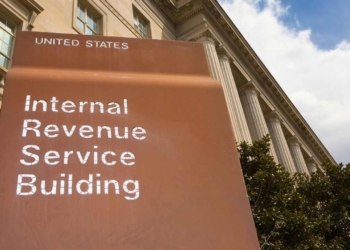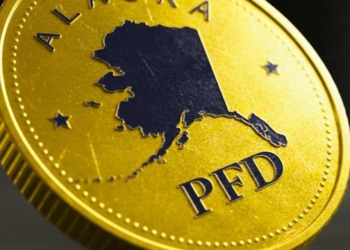Exciting developments are underway for the nation’s wealthiest individuals, car enthusiasts, parents, and those in the service industry like waiters and waitresses. A significant piece of legislation recently cleared the U.S. House in the early hours of May 22, bringing potential benefits to these groups.
However, there’s a downside for those earning below $50,000 annually, as well as for Medicaid and food stamp recipients, and individuals burdened with student loan debt.
This legislation, aimed at enacting President Donald Trump’s ambitious agenda, still faces a challenging journey to becoming law. It now moves to the Senate, where it might undergo modifications before it can be presented to the president for his signature.
Let’s dive into the essential details of the package that President Trump proudly refers to as his “big, beautiful bill.”
In a move that could significantly impact millions, House Republicans have greenlit major changes projected to save at least $625 billion from Medicaid. This program currently provides vital health insurance to over 71 million low-income Americans.
Initial estimates from the nonpartisan Congressional Budget Office suggest that recent legislative changes could lead to 7.6 million Americans losing their health insurance over the next decade. These alterations are poised to have a significant impact on the lives of many.
Medicaid Changes: Work Requirements and Eligibility Checks
The proposed legislation introduces stricter measures for those enrolled in Medicaid expansion. Specifically, it mandates work requirements for adults and increases the frequency of eligibility checks, ensuring that recipients continue to meet the program’s criteria. These steps are intended to tighten oversight and ensure efficient use of resources.
Restrictions on Funding and Coverage
This bill also proposes barring Medicaid funds from being used at clinics that perform abortions, such as Planned Parenthood. Additionally, it discourages states from using their own money to provide Medicaid coverage for undocumented children, potentially affecting healthcare access for vulnerable populations.
SNAP Work Requirements: Impact on Older Adults
Beyond healthcare, the legislation impacts the Supplemental Nutrition Assistance Program (SNAP), commonly known as food stamps. It introduces new work requirements for individuals aged 55 to 64, a change that could affect many of the 42 million Americans currently receiving food assistance. This move aims to encourage workforce participation but raises concerns about the potential burden on older beneficiaries.
Implementing this policy could potentially save up to $300 billion over the next decade. It would also mark a significant change by shifting more of the program costs to states for the first time. Additionally, the policy would restrict SNAP eligibility to citizens and lawful permanent residents, and prevent future administrations from increasing benefits without the approval of Congress.
Big Tax Breaks
The 2017 Tax Cuts and Jobs Act, signed into law by Trump during his first term, is set to expire at the end of the year. If these tax cuts are not extended, income tax rates will increase for all but two income brackets next year.
Permanent Tax Cuts
This proposed bill aims to make the tax cuts permanent. Although it maintains lower tax rates for all income groups, the benefits are disproportionately skewed towards wealthier Americans.
- Families could enjoy an increased child tax credit of $2,500 through 2028.
- After 2028, this credit would decrease to $2,000.
- If the bill fails to pass, the child tax credit will revert to $1,000 at the end of this year.
As we navigate the complexities of tax legislation, it’s crucial to stay informed about potential benefits. Here are some significant updates that could impact diverse groups, from seniors to workers earning tips and overtime.
Tax Relief for Seniors
Individuals over the age of 65 may find some welcome relief in their tax obligations. If you earn less than $75,000 individually or $150,000 when filing jointly, you can potentially deduct an additional $4,000 from your taxes. This provision is designed to ease the financial burden on seniors with limited income.
New Opportunities for Tipped and Overtime Workers
There’s good news for tipped employees and those working overtime, such as waiters and hairstylists. A new tax deduction for tips is available through 2028, recognizing the unique income structure of these professions. Additionally, employees receiving overtime wages can also benefit from this deduction.
Incentives for American-Made Vehicle Purchases
If you’re considering purchasing an American-made vehicle, you might be eligible to deduct up to $10,000 in car loan interest payments. This temporary measure encourages support for domestic manufacturing.
SALT Deduction Benefits
In states like California, New York, and New Jersey, where state and local taxes are particularly high, there’s a push to increase the cap on state and local tax deductions (SALT). This change is significant for those aiming to reduce their federal tax liability.
The 2017 tax law imposed a cap of $10,000 on SALT deductions. However, under the new proposal, this cap would rise to $40,000 for individuals earning under $500,000 annually, offering substantial relief to taxpayers in high-tax regions.
In a significant move towards reshaping the landscape of green energy, a proposed bill aims to significantly roll back various green energy tax credits. These changes will impact projects commencing just 60 days after the bill’s passage, a strategic adjustment championed by fiscal conservatives eager to reduce the overall bill expenditures.
Reversing the Inflation Reduction Act
This bill proposes to retract several climate-focused initiatives introduced during former President Joe Biden’s tenure under the Inflation Reduction Act. Notably, it seeks to eliminate the $7,500 tax credit for electric vehicles, a move that could influence the burgeoning EV market.
“Trump” Savings Accounts
Another notable provision in the bill introduces the concept of “Trump” savings accounts. Under this plan, children under the age of 8 would receive $1,000 each, enabling their parents to establish these so-called “Trump” accounts, a concept that has garnered support from Republican lawmakers.
Imagine a future where you can invest in your child’s dreams without worrying about taxes. Parents, relatives, and non-profits have the opportunity to contribute up to $5,000 annually to an account, completely tax-free, until the child turns 18. This fund isn’t just for college; it opens doors to a variety of life opportunities. From higher education and training programs to buying a home or starting a small business, the possibilities are endless. By the time the child reaches 30, these funds become completely unrestricted, allowing for even greater flexibility.
Taxing Universities, Boosting Private Schools
The proposed legislation introduces a significant shift in how we manage educational funding. One of the major changes is an increase in taxes on private university endowments, especially targeting those with larger reserves, like the prestigious Harvard University. This move aims to redistribute resources in a way that could balance educational opportunities across different institutions.







